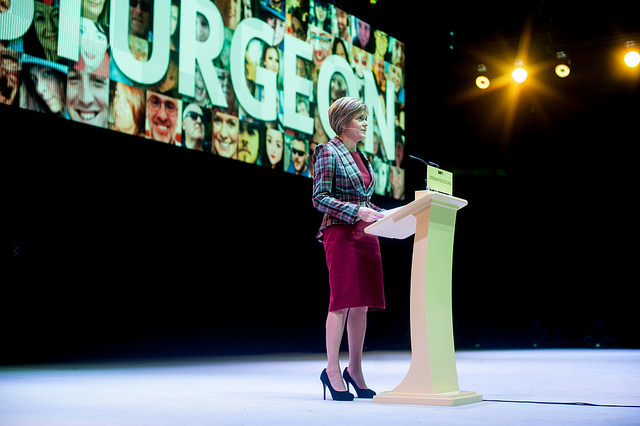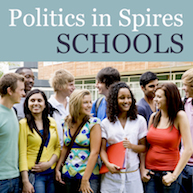
The Loser Takes It All – The SNP after the referendum
If a political party were ever lucky enough to find itself in the SNP’s current position in Scotland, but across the entire United Kingdom, it would be heading towards the biggest landslide in British political history. The Nationalists are predicted to win around 45 per cent of the Scottish vote, giving them between 71 and 91 per cent of Scotland’s MPs.
The SNP offer candidates in only 9 per cent of Westminster constituencies yet are currently the British political party most certain of playing a role in the formation of the next government. The party’s current success comes against a backdrop of winning only 6 MPs in 2010, having as little popularity as the widely-loathed Scottish Conservatives as recently as 2013 and, in September of last year, leading a losing referendum campaign that forced a change in party leadership.
However, it is the referendum question that is now benefiting the SNP. The referendum campaign greatly increased support for independence, which is highly correlated with SNP voting in the General Election, as well as further dividing the Scottish party system, which was already split by attitudes towards independence. The closeness of the campaign has not extinguished hope amongst ‘yes’ voting Scots that independence remains a realistic possibility. Indeed, supporters of the SNP have become ever more fervent in their partisanship since September’s referendum.

What would change if the voting age was lowered to 16?
This autumn, in his speech to the Labour party conference, Ed Miliband called for the voting age to be lowered to 16. This follows legislation by the SNP government in Scotland to allow 16 and 17 year olds to vote in the forthcoming referendum on Scottish independence. Explanations of the merits of extending the franchise to younger people normally begin with statements such as ‘if someone’s old enough to X…’ with X replaced by ‘marry’, ‘go to war’, ‘pay taxes’ and so on. We might note that these are, at best, weak arguments since 16 year olds can only marry and join the army with their parents’ permission and even 5 year olds pay tax in the form of VAT when their pocket money is translated into sweets.[1] Either way, it seems likely that the SNP’s decision was not really based on the merits of the case and was simply a narrow electoral consideration. Young people are generally in favour of Scottish independence, so allowing them to vote will increase the proportion of people voting yes. It seems reasonable to think that this is also the major reason why the Labour party is now interested in lowering the voting age in general elections to 16. Young people are seen as more likely to vote Labour, so allowing them to vote will boost Labour’s prospects in future elections. What is never quite clear is whether these are sensible conclusions. Would the entrance of 16 and 17 year olds into the electorate make much difference?

Slovakia’s election: another majority government from a proportional electoral system
On Saturday 10th March 2012, Slovakia joined the small but growing club of European countries that elected a majority government despite using a proportional representation system. The centre-left Smer party, led by Robert Fico, won 86 out of 150 seats with 44.9% of the vote. Although it was predicted that Smer would win the election, even Fico himself was surprised by the scale of the result. Since the eurozone crisis started to bite, strong anti-incumbency sentiments have regularly produced extreme results. In Hungary, Fidesz won more than a two-thirds majority in parliament in 2010 with 68% of the popular vote. In Scotland, a proportional electoral system unexpectedly produced a majority government in 2011, when the Scottish Nationalist Party (SNP) won 69 out of 129 seats with 45% of …









